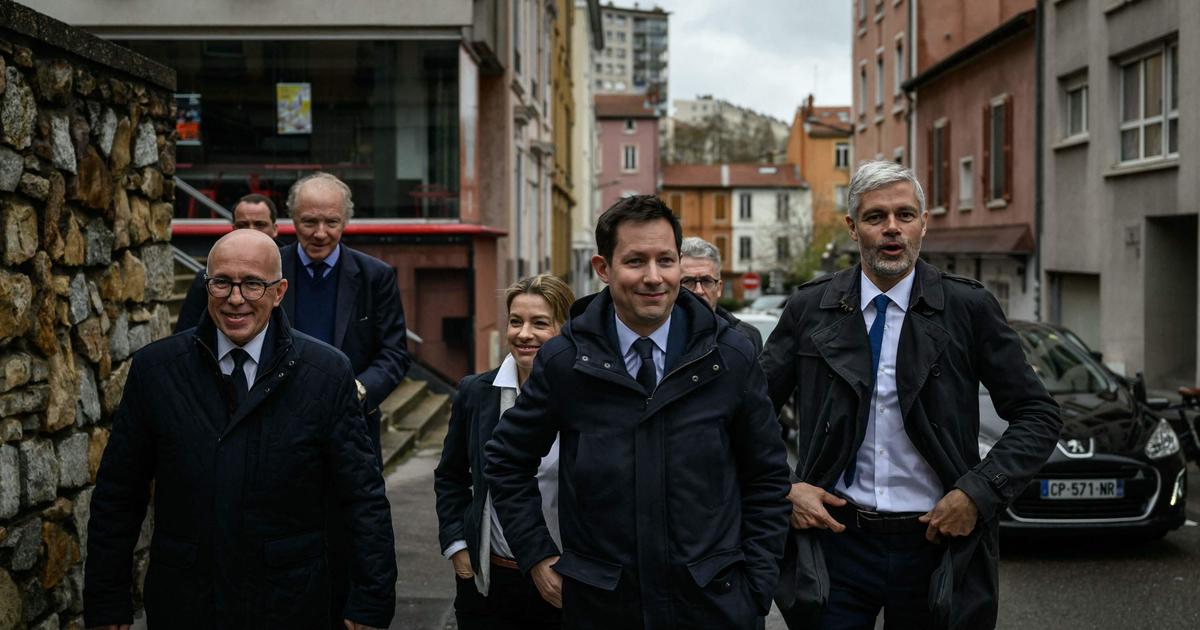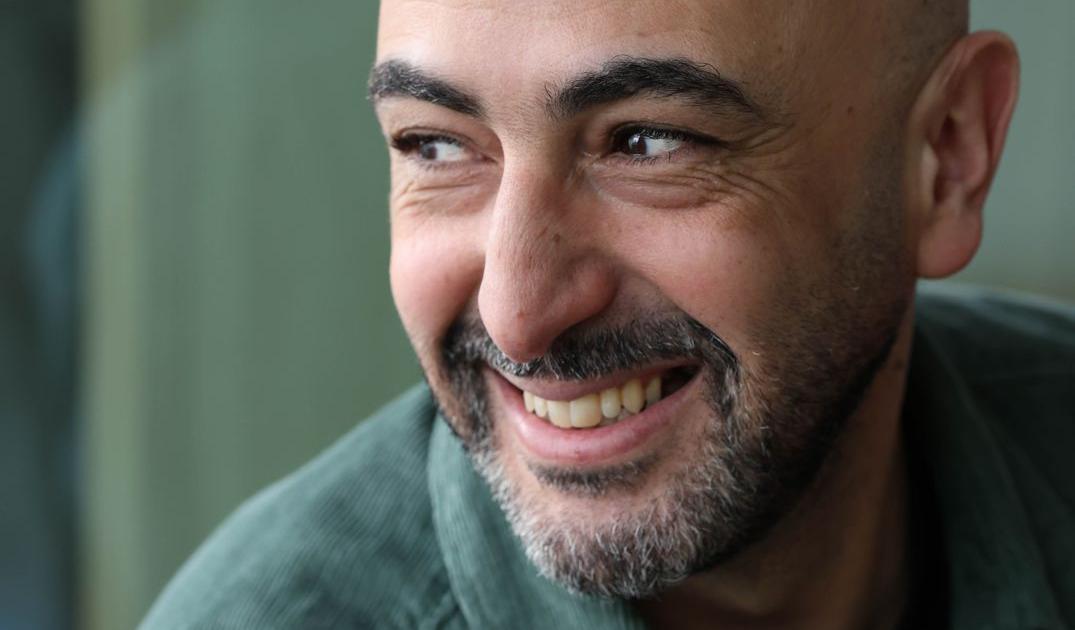It had been achieved. That is the perception that the majority of Spaniards had and that is how they behaved. The vaccination was a success and the end of the pandemic was finally being touched with the fingers. Christmas carols were already playing in the background and, suddenly, the music stops with a shrill braking: omicron arrives, a more infectious variant, galloping on the back of the sixth wave. Society is used to these suits, but in this case it is different; the frustration is greater. Once immunized, the citizens aspired to have almost normal parties. And in previous spikes of infections, there was a clear goal that encouraged us to fight against the storm: to fall the curve, buy time to develop vaccines, achieve herd immunity. After the summer, we thought we had come to fruition; now we no longer know if that port exists. Mass infections.Tickets back home that are canceled. Unsuccessful pilgrimage from pharmacy to pharmacy in search of
self test
.
Return of outdoor masks.
"There is a feeling of hopelessness," says Carmen Rodríguez-Blázquez, a researcher at the National Epidemiology Center.
She works in the Cosmo-Spain survey, promoted by the World Health Organization to know the perception of the pandemic.
In October, 80% of Spaniards thought the worst was over;
at the beginning of December it was 60%.
It is the lowest percentage since May, seven months ago, when only one in five adults had the complete pattern.
“We have done what they have asked us, we have confined ourselves when necessary, we have been vaccinated.
And now what? ”, He sums up.
“I couldn't tell you what that goal should be now.
It is difficult for us to visualize the next step "
Carmen Rodríguez-Blázquez, researcher at the National Epidemiology Center
Last Sunday, the President of the Government, Pedro Sánchez, addressed the nation with these words: "We have walked the most painful part of the road together and together we are going to complete this journey." But what is now the end of the road? “I couldn't tell you what that goal should be now,” acknowledges Rodríguez-Blázquez, “it's more difficult to set a medium-term goal that gives us hope. It is difficult for us to visualize the next step ”. Many specialists criticize that in the management of this health crisis there has not been enough insistence that the pandemic will not end with a showy full stop. Probably, the covid will become endemic, in more or less manageable values. And that, at this moment, causes frustration.
"No one dares to say how the end will be or if there will be an end," says epidemiologist Manuel Franco.
“We had believed the Spanish miracle of vaccination.
We had already succeeded and all this was over.
And now we feel helpless, "adds a researcher at the University of Alcalá.
"What is clear," he continues, "is that the new normal contains scares and perhaps we have to get used to living differently from previous decades."
You think you have killed the final monster of the video game and suddenly you realize that the game continues;
You're not on the first screen and you have better weapons — vaccines, treatments — but unknown enemies keep shooting at you.
"The new normal contains scares and perhaps we have to get used to living differently"
Manuel Franco, epidemiologist at the University of Alcalá
16% of Spaniards claim to have suffered an anxiety or panic attack derived from the pandemic. And almost half (46%) say that the pandemic is affecting them personally a lot or a lot, according to the questions that the CIS asked when the news of the new variant of the coronavirus began to arrive. A couple of months earlier, there was a collapse in compliance with all restrictions, according to Cosmo-Spain: "With the vaccines, everything was over," summarizes Rodríguez-Blázquez. Now all the worries derived from infections have suddenly grown, such as infecting a family member or saturating the health system.
Spain perhaps suffers more in this scenario because it is a country with a great aversion to risk, which does not coexist well with open and complex scenarios, from the perspective of social psychology. "Uncertainty is very uncomfortable psychologically speaking and in Spain the data indicate that we tolerate it especially badly," says researcher Alexandra Vázquez, from UNED. "It generates a lot of anxiety and what we do to manage it is to develop a large set of rules, try to adhere to them and thus we know what to do in each situation," explains this social psychologist. Perhaps that is why, despite the picaresque clichés, the Spaniards have complied with exemplarity. And now there is a scenario of "broken expectations", according to Vázquez.
Both the Cosmo-Spain survey and the CIS barometers confirm that Spaniards are comfortable with limitations and generally demand more than they have.
The majority (46%) now believe that more demanding measures should be taken and this is the majority option among the voters of all national parties, also the PP and Vox.
And at this moment, when the curve grows, almost all the rulers have proposed a new menu of demands.
Including some unpopular and unscientifically backed, like wearing a mask outdoors when you can keep your distance from other people.
A restriction announced by the Minister of Health, Carolina Darias, speaking in public without a mask inside a room.
"They treat us like children because the policies that are proposed do not give for more"
César Rendueles, Institute of Philosophy of the CSIC
Toni Trilla, head of Epidemiology at the Hospital Clínic de Barcelona, has expressed that he does not understand the measure even as a wake-up call: “Whoever says that it is easier for people because that is how they always put it is to treat citizens in a childish way ”.
That aspect is the one that bothers César Rendueles, a scientist at the CSIC's Institute of Philosophy: “They treat us like children because the policies that are proposed do not give for more.
The measures that could be communicated as a dialogue between adults and citizens are complex, related to public health, but they are more expensive ”, he criticizes.
Seven regional presidents demanded these masks outdoors for all of Spain, but they have not imposed any additional restrictions in their own regions.
Specialists in social psychology have insisted since the beginning of the crisis that the coherence of the measures is essential to achieve compliance. And that the measures should be focused on protection, not restriction; they should be perceived as shields, not as punishments. "If the rules are not clear and change from one day to the next for no reason," Vázquez warns, "it is likely that people will stop trusting them and those who impose them."
From Rendueles's perspective, the time has passed to take measures of "war policy and war metaphors" and it is time to assume the endemic phase, in which it is time to "live with the virus in a much broader time horizon", with simple and universal measures, reinforcing the collective responsibility to protect ourselves. "But from the political sphere, this contract is not being fulfilled: the search for antigen tests turned into a Darwinian struggle is the best example of how social trust is destroyed, which is essential," Rendueles denounces. As the epidemiologist Manuel Franco describes: "The infections are triggered and I don't even know what to do, the lack of clarity is terrible, people are very tense avoiding the bullets and you have a system that is not responding to you."
“This wave does not catch us the same as the previous ones;
it is the problem of triumphalist speeches, we considered the pandemic settled "
Celia Díaz, sociologist at the Complutense University
The sociologist Celia Díaz, from the Complutense University of Madrid, has been following the perception of vaccines in the pandemic and fears that this avalanche of infections will cause a "defeatism" that leads to not getting the booster doses.
“It is the problem of triumphalist speeches, a wrong message has been given.
We considered the pandemic settled ”.
Díaz assures that "this wave does not catch us the same as the previous ones" and warns of the arrival of a "dangerous disaffection".
"Extremisms are extolled, trust in institutions is lost and many people can go to dangerous places," he warns.
Rendueles agrees: "It is not dystopian imagination, we know what can happen: the Spanish were the most responsible, they assumed the restrictions without question ... But all that deteriorates at dizzying speed as soon as they see that the social contract is broken." And he warns: "Before the chronification of the crisis we are in an unpredictable situation." Omicron may be the last bump, but it has awakened us from the dream of victory. The new normal is not knowing what is normal. And the goal is dissipated: when the gods punished Sisyphus to forever push a stone down the slope, at least he knew that at the end of the hill there was a peak.
You can write to
javier@esmateria.com
and follow
MATERIA
on
,
and
, or sign up here to receive
our weekly newsletter
.















